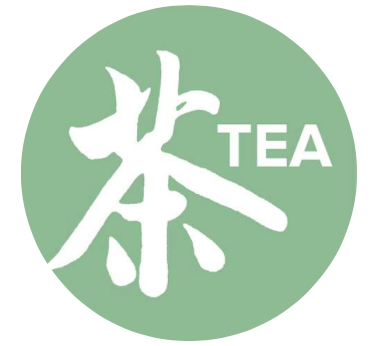Tea Time
by Janelle Salanga | UC Davis Magazine | July 1, 2019
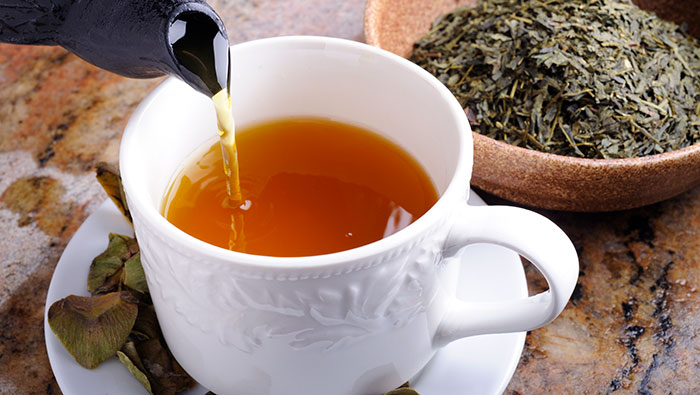
Tea is more than just leaves and water. Dating back centuries, tea is one of the most versatile beverages, with many varieties said to have health benefits. Katharine P. Burnett, associate professor of art history, directs the UC Davis Global Tea Initiative, founded in 2015 to synthesize interdisciplinary global research on tea and draw together researchers in the field. Here, she shared more about the popular drink.
Ancient History
Burnett, former director of East Asian studies, said that according to Chinese legend, tea was discovered around 2800 BCE. “It was a medicine, then a soup ingredient, then a beverage,” said Burnett. “Buddhist monks drank it to stay awake during meditation.” Tea’s reach expanded to Western Europe in the 17th century when maritime trade spread and European nations cemented economic relationships with China.
SE Asia Connection
Burnett is currently studying Southeast Asian tea cultures. “Because tea grows indigenously from southwest China across Southeast Asia to northeast India, it is reasonable to suppose that these areas developed their own tea cultures,” she said.
Taste Test
Flavor profiles are affected by where tea is grown. Burnett likened tea to wine: “A green tea in China tastes different from a green tea in Japan. But they all have virtues. Like wine — sometimes you want a Cabernet Sauvignon from Australia instead of the U.S., and sometimes you want a black tea from Sri Lanka instead of India.”
Keep Calm
Theanine, found in tea, is an amino acid that is said to have a relaxing effect. “Even though tea has caffeine, it also has this calming component that almost nothing else has,” said Burnett.
Brew a Great Cup of Tea
1. Start with good quality water. “If you have a lousy water supply, you cannot make a good cup of tea,” Burnett said.
2. Use loose-leaf tea, located in teashops and many supermarkets.
3. Monitor the water temperature. Depending on your tea leaf, said Burnett, the water temperature for optimal taste changes.
- Green tea: 175°F
- White tea: 185°F
- Oolong tea: 190°F
- Black tea: 212°F
4. Check your steeping time. Burnett recommended tasting the tea every 30 seconds to achieve your preferred taste. Then, she said, “Pour the liquid — called liquor — off the leaves, into another pot if you have a large quantity, and into a cup from there.”
The Farmer That Saw His Budding California Tea Farm Go Up in Smoke
by Jonathan Kauffman | San Francisco Chronicle | April 8, 2019
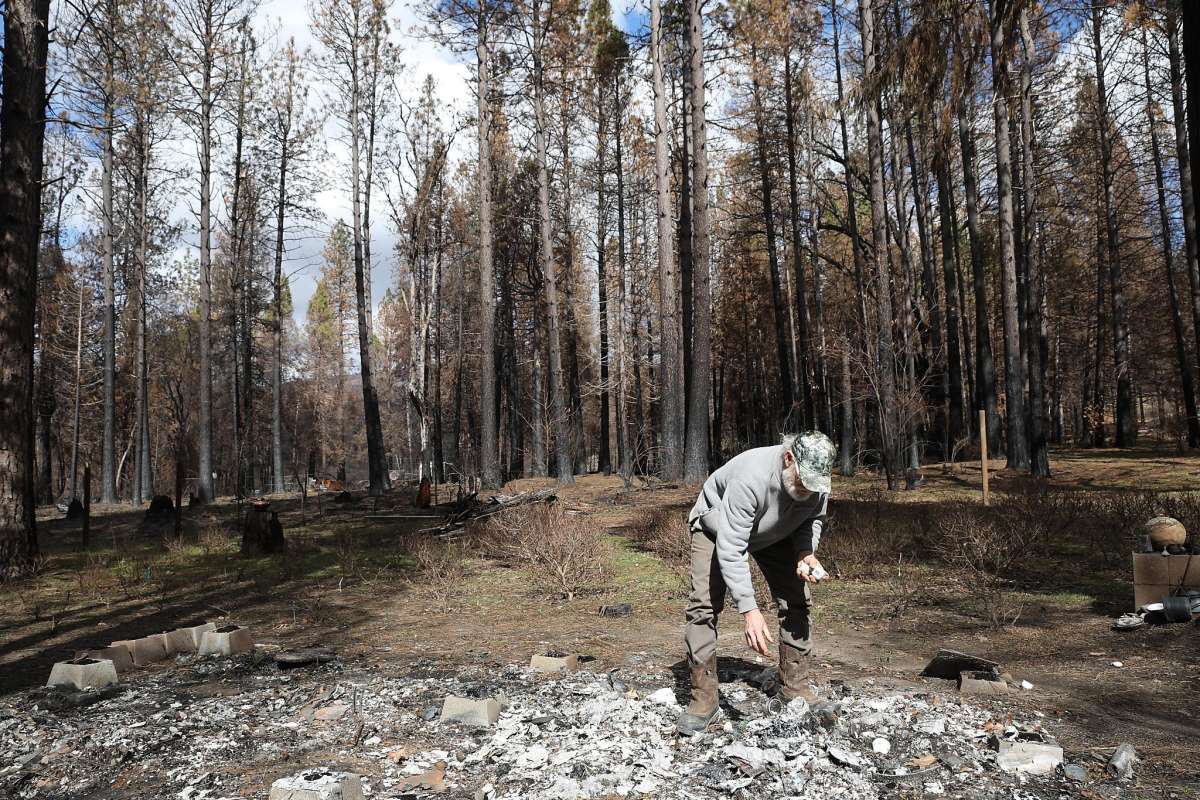
It took less than 10 minutes for Mike and Donna Fritts to lose everything.
From the moment Donna opened the garage door of their house in Concow (Butte County), just over the ridge from Paradise, only to spot treetop-high flames flowing down the ridge, they knew the fire was coming for them, and fast. Mike and Donna grabbed a few legal documents from their small home. They called Mike’s son to warn him to get out of town, crammed three large dogs into their Subaru and ripped out onto Concow Road.
Ten minutes was too fast to warn their neighbors. Too fast to hose down the house and grounds. Too fast, even, to grab the remaining stock of Mike Fritts’ teas, which represented eight years of labor.
Growing tea hadn’t just been a hobby or a profession for Mike Fritts, 63. It was a sort of cure, he says.
Before the day in 2010 when Fritts started hallucinating, he had spent most of his life — the majority of it in the Sierra Foothills — working with plants as an independent horticulturalist and landscaper. The work had made him wiry and strong, turned his hands into blocks of stone-hard skin and burnished his face. So he wasn’t sure why he woke up woozy. “Things were wavy. I couldn’t see straight,” he says. “So I laid down. I was nauseous.” He had trouble getting up.
Eventually, the doctor traced the sickness to a tick bite, perhaps a series of them. Mike tested positive for Lyme disease as well as a few co-infections. It had colonized his brain as well as his body.
Lyme left him so addled and weak that he was forced to quit his job working out of Mendon’s Nursery in Paradise to focus on getting better. He and Donna, who had married that year, lived on a 1-acre plot in a sort of rural subdivision in Concow called Camelot Park, surrounded by wood-frame houses and mobile homes on similar-size plots. A stream divided a sunny western strip of pasture from the other four-fifths of the Fritts’ property, which was shaded by tall Ponderosa pines, cedars and oaks. The neighborhood was far from prosperous.
But the area had good soil, decomposed granite and forest humus, and ample water. A forest fire had clambered through the development in 2008, clearing a jagged path, so the couple, like their neighbors, kept the underbrush cleared.
Fritts chafed at the way his illness kept him inside. While shuttling from doctor to naturopath in 2010, he stopped by his old nursery and noticed that rows of small Camellia sinensis sinensis cuttings — tea plants — were on sale. Mendon’s had purchased them from a Southern California nursery famous for its camellias. Fritts knew that his land had acidic soil, which camellias love, and he was curious whether these might flourish on his property.
“I had to find something else to do, and tea plants were giving me a reason to go outdoors,” he says. “I started researching deeply into the tea, and finding the history of the tea and its medicinal benefits and what I can do to heal naturally from Lyme.”
So he planted the cuttings alongside the house and lavished his decades of experience on his tiny plantation. He fed them a little organic fertilizer from time to time — “any amount of poison in tea is not pure tea,” he says of pesticides — and irrigated them parsimoniously so their tap roots would plunge deep to seek out groundwater. He pruned each bush enough so that it fleshed out as it grew. He calls his approach to farming “pre-industrial.”
“I have kind of a druid mind-set with the land,” Fritts says. “I want to protect the trees, I want to protect the earth, the bugs and everything that is part of nature before we came in and started moving it around.”
FDA Warns Dietary Supplement Makers
by Fresh Cup Staff | Fresh Cup Magazine | March 19, 2019
Link: https://www.freshcup.com/fda-warns-dietary-supplement-makers/
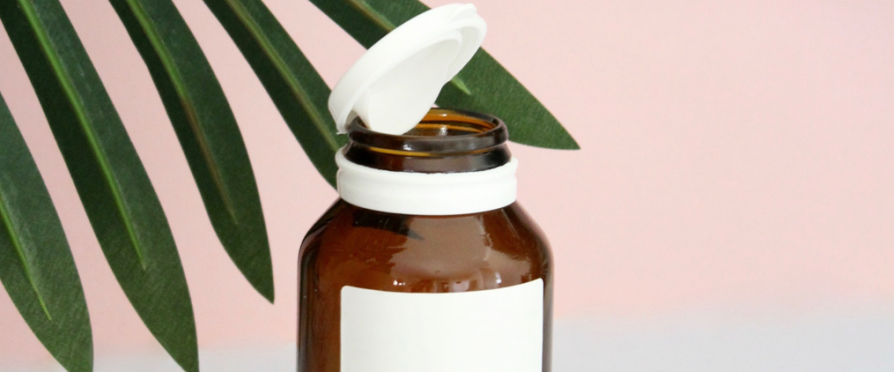
From flat-tummy tea to insomnia-treating melatonin, the FDA is launching its largest crackdown on the dietary supplement market in 25 years. The crackdown started in February, when the FDA sent 12 warning letters and five online advisory letters to foreign and domestic companies that are illegally selling dietary supplements that are unapproved new and/or misbranded drugs that claim to prevent, treat, or cure Alzheimer’s disease and a number of other serious diseases and health conditions.
Some of the claims specifically called out in the FDA letters sent to companies were associated with Green Tea and Green Coffee extract:
“Green Tea Extract … Green Tea’s polyphenols are scientifically proven to … reduce a woman’s risk for heart disease.”
“Green Tea Extract … possesses a wide range of therapeutic properties that are used in the treatment and prevention of some forms of cancer, Parkinson’s disease, human papilloma virus, and kidney stones.”
“Green Coffee Beans … The extract has also shown positive effects in the regulation of high blood pressure and as an anti-diabetic supplement.”
“Green Coffee Beans … use of chlorogenic acid from green coffee bean extracts as an important inhibitor of diet-related obesity and obesity-related metabolic syndrome … [and] promote significant weight loss in individuals who suffer from morbid obesity. The extract has also shown positive effects in the regulation of high blood pressure and as an anti-diabetic supplement.”
“One of my top goals is ensuring that we achieve the right balance between preserving consumers’ access to lawful supplements, while still upholding our solemn obligation to protect the public from unsafe and unlawful products,” says FDA Commissioner Scott Gottlieb, M.D., in a news release published by the agency, “and holding accountable those actors who are unable or unwilling to comply with the requirements of the law.”
Gottlieb also points out, “Such claims can harm patients by discouraging them from seeking FDA-approved medical products that have been demonstrated to be safe and effective for these medical conditions.”
The FDA will continue to monitor the supplement industry and take action against companies making similar claims for the treatment of serious conditions such as cancer and opioid addiction.
Fresh Cup reached out to Katharine P. Burnett, the founding director of the Global Tea Initiative, for her advice on how companies promoting the health benefits of tea should respond to this news:
“[Global Tea Initiative] recommends that the tea industry members should make sure that all claims are substantiated. Whenever claims are not substantiated, then it would be best to note that the claims are anecdotal only. This doesn’t help the public much, but it is fair, and people appreciate fair and honest. Researchers around the world and at UC Davis are working hard to back up many of these claims—or prove they are baseless.”
As the Global Tea Initiative updates its website, the organization will be providing a curated list of trusted scholarship on tea, including proven health benefits. Stay tuned to globaltea.ucdavis.edu for updates.
Growing a California Tea Industry
by Becky Oskin | UC Davis College of Letters & Science | February 7, 2019
Link: https://lettersandscience.ucdavis.edu/blog/growing-california-tea-industry
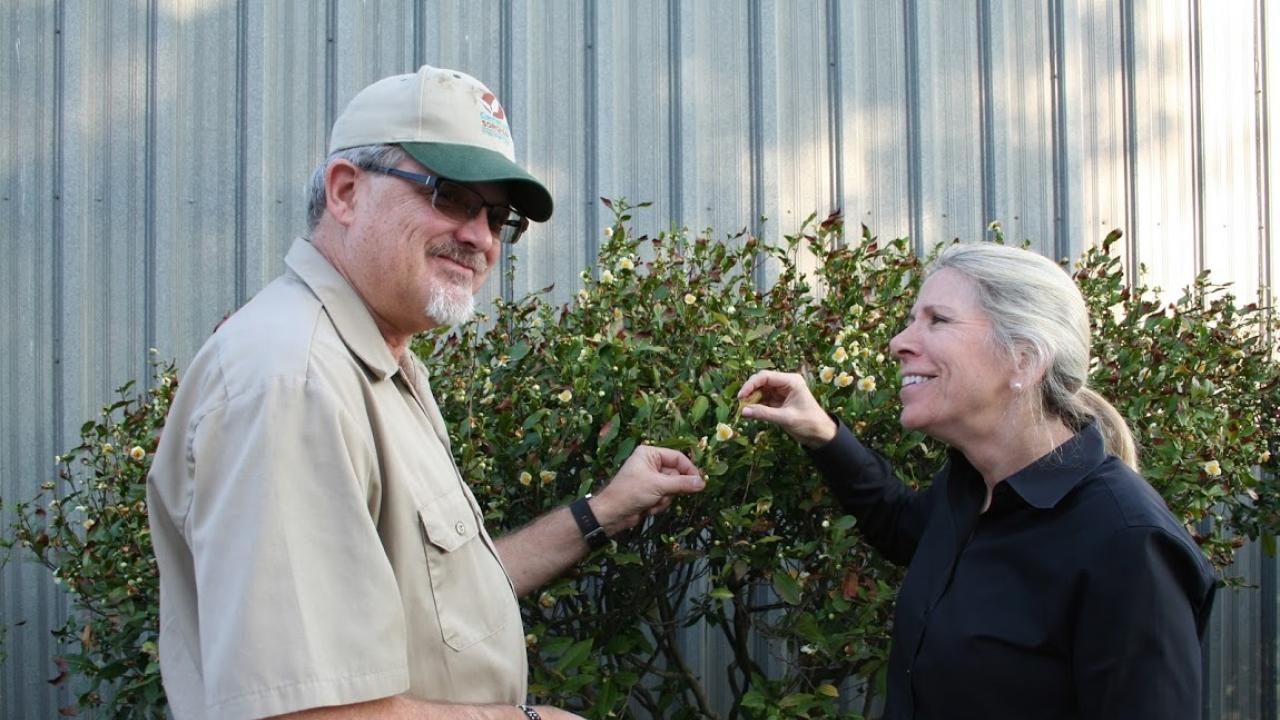
Jeff Dahlberg, left, and Jacquelyn Gervay-Hague stand in front of nine tea plants at the UC Kearney Agricultural Research and Extension Center.
Researchers around the world are taking advantage of advances in genetic engineering, molecular biology, genomics and horticultural science to develop varieties of tea with less caffeine, as well as others with improved flavor, resistance to stress, or increased yields, according to a story in Nature magazine.
Jacquelyn Gervay-Hague, a chemical biologist in the UC Davis College of Letters and Science, is featured in the story for her efforts to jump-start tea production as a new industry in California. Gervay-Hague is a research affiliate of the UC Davis Global Tea Initiative for the Study of Tea Culture and Science (GTI), which brings together faculty from disciplines ranging from agriculture, chemistry, and medicine to art, religious studies, and literature.
A team led by Gervay-Hague is planting 30 varieties of tea at seven sites across coastal, flat agricultural and mountainous regions of the state, reporter Elie Dolgin writes in Nature. Gervay-Hague’s goal is to better understand the links between growth conditions and tea-plant quality. Her team is also feeding the plants chemically labeled nutrients to track their metabolic processes and interactions with soil microorganisms. “We expect to find that certain varieties are going to do better in certain areas, and we’ll have a chemical basis for understanding that,” says Gervay-Hague.
Colloquium Addresses Issues Surrounding Tea and Health
Tea plays a heathy role in maintaining the human body, mind, and spirit according to an impressive lineup of speakers participating in a colloquium hosted by the University of California, Davis.
The day-long event on Jan. 24 presented “tea as a prescription for today’s society.” Segments addressed Tea, Health, and the Body; Tea, Health, and the Mind, and Tea, Health, and the Spirit. The event, now in its fourth year, drew a crowd of 500 students, residents, and tea professionals to the campus, located near Sacramento, Calif.
Several years ago, Professor Katharine Burnett proposed that the university undertake a Global Tea Initiative (GTI) like its outreach in wine, beer, and specialty coffee. The colloquium is one aspect. Burnett noted more than 3,000 research papers demonstrate the myriad health benefits of tea drinking.
University quality research and large-scale demonstrations are reassuring, but as one of the key speakers observed… The fact that tea is amazingly good for you is very, very old news.
Wing-chi Ip
Wing-chi Ip is a remarkable resource in the world of tea. A tea master, designer, artist, expert in Yixing pottery, founder of the Hong Kong Tea Association, professor at Shuren University, and owner of several tea rooms, including the famous LockCha museum and tea center in Hong Kong, Mr. Ip calls himself Mr. Leaf (the Chinese character for Ip is leaf).
Tea has been cultivated since Neolithic times in China where it was first used as a medicine. Ip traced the Chinese characters describing medicine and food to the same origin. The origin of language is obscured by time, but the origin of individual languages is subject to very precise study. Tea is derived from collective terms for “herbs that cure sickness,” he said. Ip noted that Chinese medicine is based on the premise that “the best doctors cure before the sickness happens,” not after their patients become sick. This is why tea has such prominence.
Various medicines cure different diseases, but tea is the medicine for all kinds of diseases, explained Ip. This is because tea “is the most yin, of yins” as it lowers one’s fire. “Fire (inflammation) is the origin of all diseases,” he explained. He then cited the 10 virtues of tea, first published by physician Liu Zhenliang of the Tang dynasty (618-906 A.D.).
“Take tea to dispel melancholy, banish sleep, increase vitality, expel disease, initiate decorum and humanity, express respect, cultivate sophistication, nurture the body, harmonize with the Dao, and regulate desire,” wrote Zhenliang. Myōan Eisai’s “Treatise on Tea Drinking for Health” identifies tea as “the miraculous medicine for conserving life vitality; the magical way for getting longevity.” Eisai (1141-1215 A.D.) is the Japanese Buddhist priest credited with bringing green tea from China to Japan.
To take care of the body all the time requires a good appetite, Ip advised.
Dr. Poo
Since “we are what we eat” much can be learned from what passes through the body, said Professor Yvonne Wan, vice chair for research in the Department of Pathology at U.C. Davis. Wan is an expert on Gut Microbiota, Tea and Health. Her self-introduction drew a big laugh – “just call me Dr. Poo.”
We may look alike but no one has the same gut. The microbiome within our bodies consists of trillions of micro-organisms that dictate many aspects of our health. These microbiomes differ greatly from one individual to the next, only 10–20 percent of the bacteria you have in your gut is shared with anyone else. Diet, lifestyle, weight, and even our moods can influence the gut.
Dr. Wan’s studies reveal the healthful impact of tea for people overweight largely due to a western diet heavy in fats and sugars. Her findings regarding liver health and obesity provide a strong basis for tea drinking according to Wan. “Antibiotics eliminate liver inflammation in control diet-fed mice, but not in Wester diet-fed mice,” she said.
“EGCG burns fat, reduces serum lipids, and improves insulin sensitivity in Western diet-fed mice,” she said. Those who eat lots of leaves and leafy vegetables also reduce difficulties with constipation and digestive inflammation. Inflammation can be traced to diabetes II, arthritis, autoimmune diseases, neurological diseases, pulmonary diseases, cancer, cardiovascular diseases, and Alzheimer’s. She cited several studies pointing to the advantages of drinking pu’er, a dark tea from southern china aged and often compressed. It produces a broth rich in amino acids and other beneficial compounds.
Individuals whose diets include lots of plant-based foods have a much more diverse microbiome which may be why they enjoy greater health.
Epigenetic Impact
Researcher Weronica Ek with the Department of Immunology, Genetics and Pathology at Uppsala University, in Sweden discussed recent findings on the unique and beneficial effects of drinking tea for women.
Epigenetic changes are those that alter gene expression. These changes can be passed down for generations. Drinking tea could literally be life changing.
“Lifestyle factors, such as food choices and exposure to chemicals, can alter DNA methylation and lead to changes in gene activity,” according to the study’s abstract.
These epigenetic changes, however, do not alter the DNA sequence.
Researchers discovered both tea and coffee can impact disease risk in human beings by stifling tumor development, reducing inflammation, and affecting estrogen metabolism.
Her work showed that tea causes epigenetic changes in women, but not in men. The changes were in genes related to estrogen metabolism and cancer. The study, however, did not find epigenetic changes in people who drank coffee.
In studies on health benefits of diets, many other factors are usually involved, she cautioned. Tea drinkers, for example, may be more health-conscious and they smoke less than the general population. There is a need for larger follow-up studies, “however, previous studies confirm parts of our results,” she said.
Eck stressed the need for additional research but finds that epigenetic changes “are certainly intriguing and may provide some insight into how the compounds in tea influence health.”
Learn more: globaltea.ucdavis.edu
UC Davis Tea Colloquium Covers Body, Mind and Spirit
by Elizabth Dobos | World Tea News | January 2, 2019
The University of California, Davis will host the Global Tea Initiative’s 4th Annual Colloquium with the theme Body, Mind and Spirit: Issues Surrounding Tea and Health on Jan. 24, 2019 at the UC Davis Conference Center. Scholars will offer a set of interdisciplinary presentations covering the health, psychology, and spirituality surrounding tea. Admission is free.
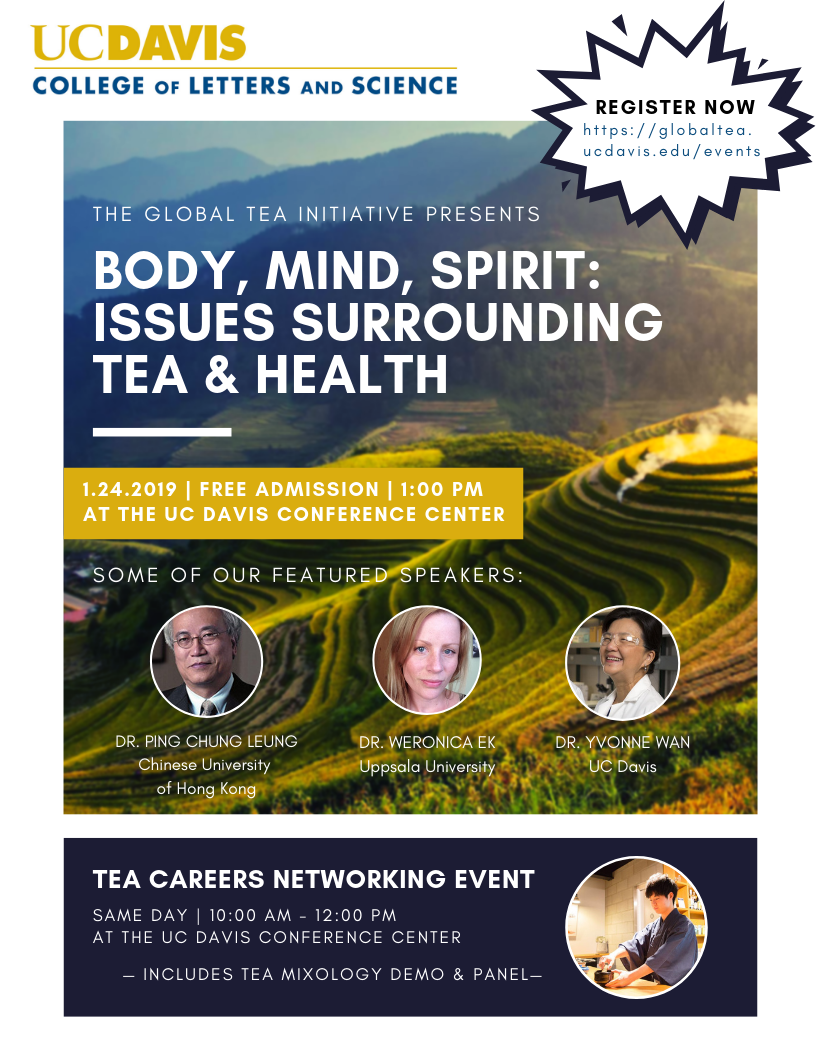 The purpose of the event is to draw attention to the importance of tea, tea research and the understanding of tea, said Katharine Burnett, Director of the East Asian Studies Program and Faculty Director of the Global Tea Initiative. The event will be of interest to not only the academic world, but also to the tea industry and the general public at large, added Burnett. Since its inception, the event has garnered the attention of the international tea community and continues to draw increasing interest from regional, national and international audiences each year.
The purpose of the event is to draw attention to the importance of tea, tea research and the understanding of tea, said Katharine Burnett, Director of the East Asian Studies Program and Faculty Director of the Global Tea Initiative. The event will be of interest to not only the academic world, but also to the tea industry and the general public at large, added Burnett. Since its inception, the event has garnered the attention of the international tea community and continues to draw increasing interest from regional, national and international audiences each year.
The colloquium’s theme focuses on a holistic approach to tea’s role in health. “We want to think more holistically, broadly and provocatively to help people better understand the depth and the great dimensions that are available in the study and understanding of this interesting little leaf,” said Burnett.
UC Davis is excited to offer this an engaging opportunity for all attendees to think about tea’s function in different areas of health. “It’s fascinating that as the most consumed, prepared beverage in the world, it has been rather under the radar… there has not been any single institute to focus on tea in this way,” said Burnett. “What we’re trying to promote is a greater understanding of tea, and evidence-based knowledge about tea, rather than the wonderful myths and anecdotes that are out there. We want to give real facts based on research and evidence.”
The event will be divided into two main segments.
The morning segment, beginning at 10 a.m., contains the Tea Careers Networking Event, which is meant to align tea industry partners and sponsors with UC Davis students to discuss internship and job opportunities. After a panel discussion, students will have the opportunity to speak directly with tea industry partners and sponsors.
Eight speakers will talk during the afternoon segment, which begins at 1 p.m.
Two will cover health in the body. The first of which, Ryo Iwamoto, founder and CEO of TeaRoom Inc., who was just appointed Tea Ambassador by the Japanese government, will give a talk on spirituality and modernity. Then, Dr. Ping Chung Leung, Director of the School of Traditional Chinese Medicine at the University of Hong Kong, will cover the history of tea and its processing, as well as tea as an aspect of traditional Chinese medicine.
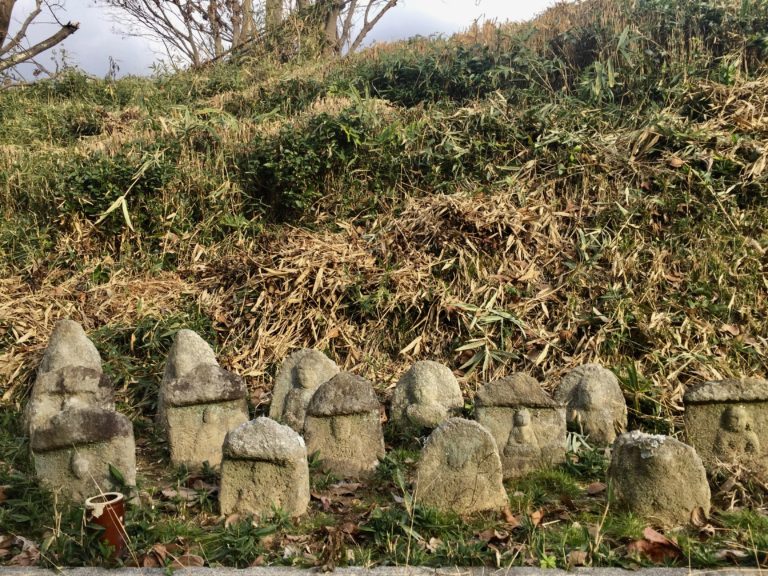 The next speakers will talk about the tea industry.
The next speakers will talk about the tea industry.
Rona Tison, Executive Vice President of Corporate Relations and PR at ITO EN will speak about Healthful Matcha: Its Demand, Perception and Growth in the Marketplace.
Following her talk, Dr. Yvonne Wan, the Vice Chair for Research in the Department of Pathology and Lab Medicine at UC Davis, will share her new research on gut microbiota, tea and health.
Next up will be Justin Trout, Co-Founder and COO of Health-Ade, who will be speaking about the industry perceptions of health as it pertains to kombucha.
Then, the colloquium will turn to tea and health and the mind. Weronica Ek, PhD., a researcher in the Department of Immunology, Genetics and Pathology at Upsala University in Sweden focuses on brain cancer and women. Her tea talk is called “Tea Consumption Leads to Epigenetic Changes in Women.”
Wing-Chi IP, the Owner and Director of LockCha Teahouse in Hong Kong, as well as a teaware and tea packaging designer, calligrapher and tea master in resident, will share his perspective and knowledge regarding tea and health.
The final speaker of the day, Gengo Akiba, a Zen Buddhist monk with the Oakland Zen Center will speak about tea and spiritual health.
Question and answer sessions will follow each talk and the day will finish off with a light reception.
Attendees can register for the event at: https://globaltea.ucdavis.edu/events/2019-global-tea-intiative-colloquium
